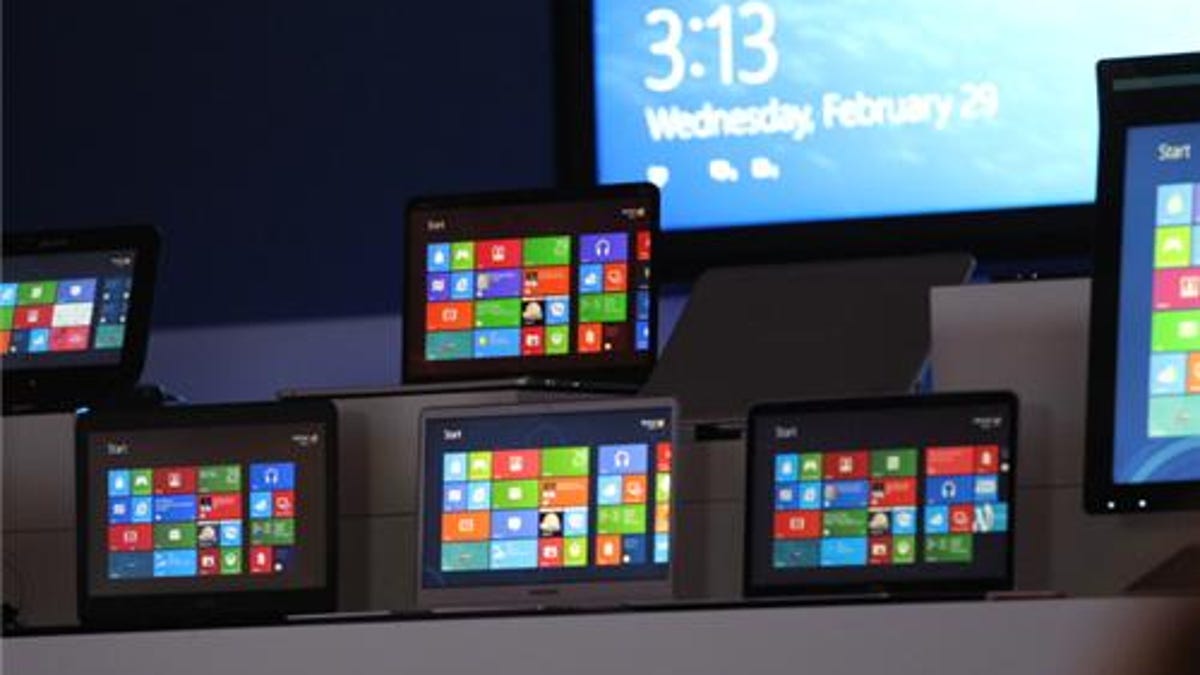Does Windows 8 diss the PC?
With all this talk about Metro, ARM, and touch interfaces, let's not forget how big the traditional laptop and desktop market still is.

It's become very fashionable lately to talk down the personal computer. HP infamously flirtedwith dropping out of the PC business before backtrackingunder a new CEO, and a Dell executive recently said, "We're no longer a PC company, we're an IT company." Add two years of non-stop iPad fever (and the resultant tablet gold rush), and that old-fashioned keyboard-touchpad-screen device sitting on your lap suddenly seems very out of style.
That may be why at today's Windows 8 press conference at WMC, and in previous Windows 8 previews, the emphasis has been on the touch and tablet targeted featuresof the new operating system, with less attention paid to how everyday PC users will benefit (much as I suggested last year during the first wave of Windows 8 previews).
Naturally, it's very trendy to want to jump on the touch/tablet bandwagon. After years of disappointing Windows tablets (see some of our tortured history with those here), Apple knocked the ball out of the park on the first try with the iPad. Success has a thousand fathers, so since then it's been rare that we've spoken to a PC hardware maker about desktops and laptops, without the conversation turning to tablets or hybrid devices.
At the Windows 8 press conference, it's telling that the "PCs without compromise" pitch was delivered with laptops/desktops, mobile phones, and tablets as three equal pillars. Most of the on-stage demos were done on tablet or touch-screen devices, with a big emphasis on swiping and sliding gestures, and the Metro interface apes phones and tablet layouts, not the everyday productivity focused desktop you're used to. And that's without even getting into ARM-powered tablets that run different software (to say that PC makers I've spoken to are hedging their bets on ARM-based Windows is putting it mildly).
Not that there's anything wrong with cool new finger-friendly interfaces and tile-based layouts. Especially as Microsoft has done such a terrible job with touch over the years (promising that each recent incarnation of Windows would be the one that finally got it right). But, having previewed many upcoming Windows 8 laptops, very few of the prototypes I've tried are something other than traditional keyboard and touchpad laptops. (To be fair, one specific type of PC--the all-in-one desktop--has already firmly embraced touch and shows no sign of looking back.)
But before everyone gets carried away in a wave of tablet and touch-screen/Metro hype, we'd do well to remember that the workhorse personal computer is still the king of the personal technology hill, and that looks unlikely to change any time soon.
According to NPD Group, PCs are still the largest category for U.S. consumer technology hardware, selling $28 billion worth of desktops and laptops in 2011 (a 3-percent drop from 2010). Tablets and e-readers nearly doubled from the previous year, to $15 billion, but that was mostly on the continued strength of Apple's iPad. If you take iPad (and Android) out of the equation, interest in Windows tablets is still tiny. It will no doubt grow under Windows 8, but mostly because it has nowhere to go but up.
So just remember, while watching everyone pinching, swiping, and tapping their Metro interface tablets and convertible laptops over the next several months in product demos, the real work is, and will continue to be, done on traditional laptops (and, yes, desktops) for a long time to come.

